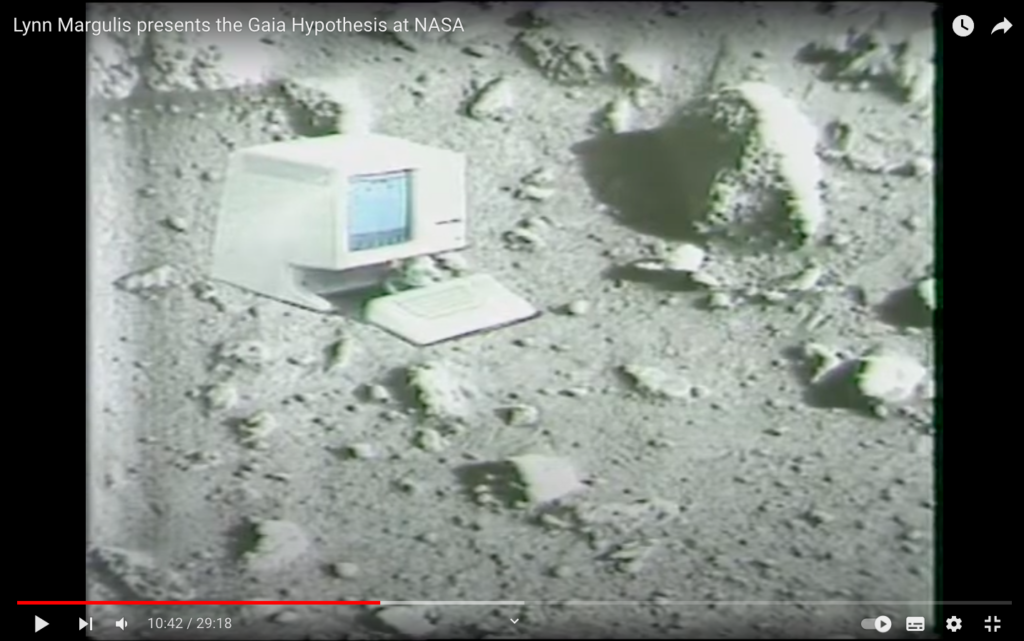
Margulis na NASA e um IBM PC em Marte
If we take a typical inner planet and measure the atmospheric gases, we will have primarily carbon dioxide, some nitrogen and trace amounts of oxygen. Oxygen and nitrogen will remove each other – that is, they’ll react, form nitrates, and remove these gases from the atmosphere […]. But if we look at the atmosphere of the Earth, we have a profound shock, from a chemical point of view. We find […] an incredible series of complex compounds that are completely inexplicable by chemistry alone. Furthermore, we have atmospheric volatiles in the form of phosphorus rich particulates, that you would call bats, birds, seagulls and so on. We have all the major gases found in living things circulating in the atmosphere, and phosphorus in the form of particulates. And the amazing thing about this [is that,] […] from a chemists point of view it’s as if the Viking Lander landed on the surface of Mars, revealed the horizon, and there, in the distance, was an IBM personal computer, a couple of flashlights and a bicycle. From a chemical point of view, these compounds [found on Earth] are that bizarre. That is: they’re completely unexpected, or they are so complex and so unstable, that there is just no chemical mechanism to make them, any more than there would be a chemical mechanism to produce a bicycle. Now you know that if you had seen a bicycle on the surface of Mars you would have said: “someone has been there before us”. You would not have doubted for a minute that chemical and physical processes alone [could not have produced] that bicycle, or that IBM PC computer. This is the chemist’s view of the Earth’s atmosphere. There are compounds that just cannot be explained on the basis of chemistry. They’re too unstable and they’re too complicated. And what is keeping the Earth’s atmosphere in this incredible chemical disequilibrium? The answer is: the living process. Because hydrogen, methane and ammonia are products of living organisms – in fact, of microorganisms, or bacteria.
Trecho de transcrição da fala de Lynn Margulis (Boston University) na NASA sobre a Hipótese Gaia, em 1984. Vídeos dessa fala pode ser acessados ho Youtube e no Internet Archive.





 LaSPA is located at the Institute of Philosophy and Human Sciences (
LaSPA is located at the Institute of Philosophy and Human Sciences (